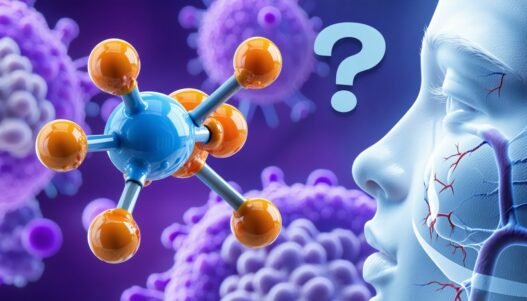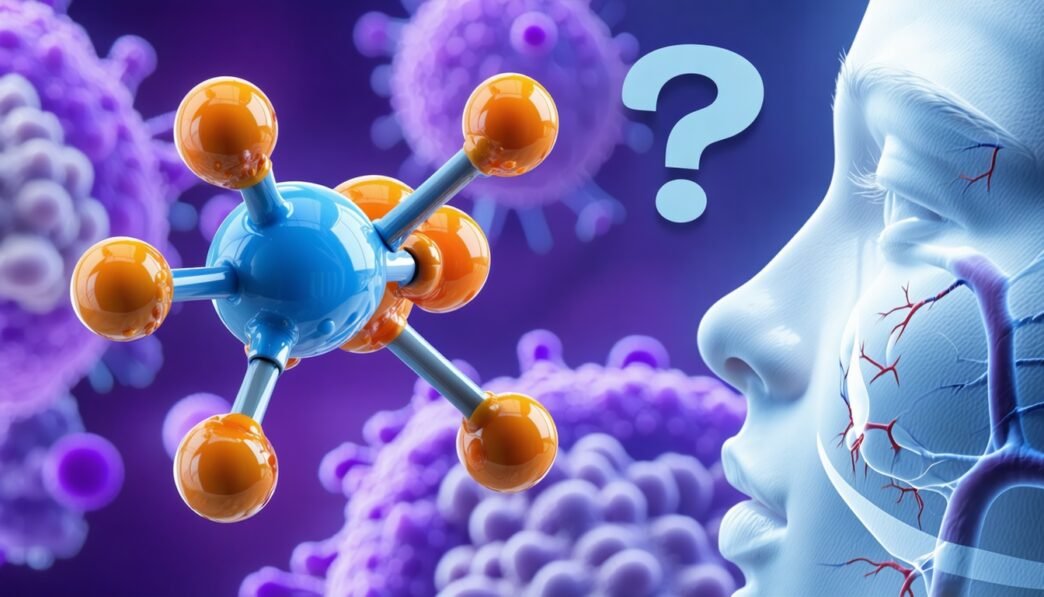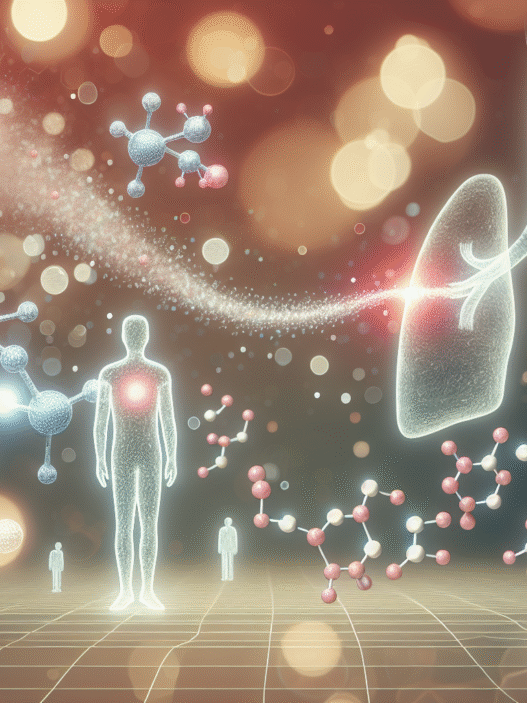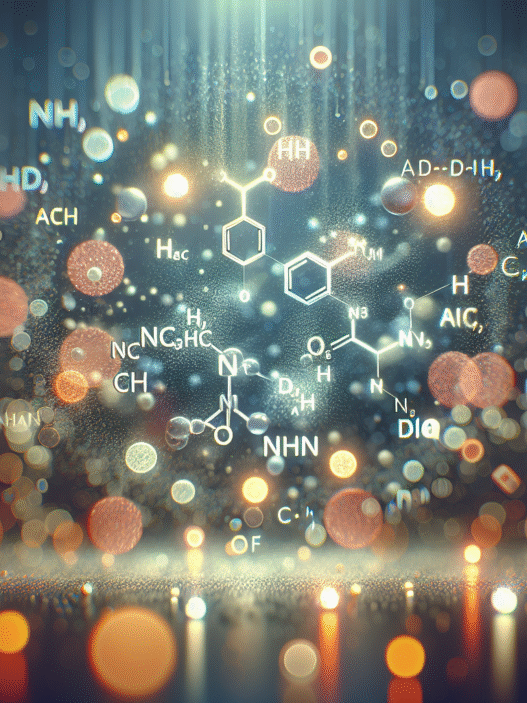Understanding NAC for Health
Introduction to N-Acetyl Cysteine
N-Acetyl Cysteine (NAC) is a derivative of the amino acid cysteine, known for its antioxidant properties and role in detoxification processes. It is recognized for its ability to increase levels of glutathione, a powerful antioxidant that protects cells from oxidative stress. NAC is commonly used in various medical applications, including as an antidote for acetaminophen (paracetamol) overdose and as a mucolytic agent to help clear mucus in respiratory conditions.
One notable aspect of NAC is its potential antitumoral effect. Studies have suggested that NAC may enhance tumor necrosis factor alpha-dependent T-cell cytotoxicity, which could play a role in managing tumor growth (Blood Journal). However, as with many supplements, the research is ongoing, and the understanding of NAC’s effects continues to evolve.
Benefits vs Risks
The benefits of NAC are often evaluated alongside its potential risks. While it has shown efficacy in various studies, its results can be inconsistent. For instance, NAC has demonstrated the ability to reduce levels of tumor necrosis factor-alpha (TNF-α) and interleukins (IL-6 and IL-1β) by suppressing the activity of nuclear factor kappa B (NF-κB), which is involved in inflammatory responses (NCBI). This action suggests that NAC may provide anti-inflammatory benefits, alongside its antioxidant capabilities.
However, the effectiveness of NAC in treating conditions such as chronic obstructive pulmonary disease (COPD) remains uncertain. Clinical trials have produced conflicting results regarding its impact on lung function and overall health status of patients with COPD.
| Benefit | Risk |
|---|---|
| Antioxidant properties that protect against oxidative stress | Inconsistent clinical evidence for various conditions |
| Supports detoxification and liver health | Low oral bioavailability (<10%) limits effectiveness (NCBI) |
| Potential support for neuroprotection and inflammation management | Conflicting results in clinical studies regarding specific health conditions |
The decision to incorporate NAC into one’s health regimen should be based on a thorough understanding of its uses, potential benefits, and risks. For those interested in the therapeutic aspects of NAC, it is advisable to consult with a healthcare professional to tailor its usage to individual health needs. Further insights can be found in our article on what is nac n-acetyl cysteine used for?.
NAC in Cancer Research
Ongoing Cancer Studies
Recent research regarding N-Acetyl Cysteine (NAC) has yielded important insights into its role in cancer biology. Ongoing studies have revealed potential concerns surrounding the use of antioxidant supplements, particularly in cancer patients or those at an increased risk of developing cancer. Notably, findings from two studies conducted on mice indicate that supplements like NAC and vitamin E may actually promote tumor growth and metastasis rather than providing protective benefits. Such evidence has prompted calls for cancer patients to avoid these antioxidant supplements (National Cancer Institute).
Antioxidants and Tumor Growth
While antioxidants are commonly believed to combat cellular damage, their effects in the context of cancer are complex. Research has shown that antioxidants like NAC might paradoxically enhance tumor formation and progression. One study indicated that by decreasing oxidative stress in metastatic tumors, NAC could inadvertently encourage tumor proliferation and growth in distant sites. Furthermore, elevated levels of glutathione (GSH), which may be influenced by NAC administration, have been connected to increased metastasis in conditions such as melanoma and liver cancer. As a result, clinicians are urged to reconsider the use of NAC and similar antioxidants for individuals already susceptible to cancer progression.
The table below summarizes key findings from recent studies regarding NAC and tumor growth.
| Study Focus | Findings |
|---|---|
| Mouse Studies | Antioxidants like NAC may promote tumor growth and metastasis. |
| Tumor Formation | NAC may enhance tumor proliferation by reducing oxidative stress in metastatic sites. |
| Glutathione Levels | Elevated GSH levels have been associated with increased metastasis in certain cancer types. |
Understanding these dynamics is crucial for those concerned about cancer management and prevention. For further insights on the implications of NAC in health, explore our article on what is NAC N-Acetyl Cysteine used for?.
NAC and Disease Management
Impact on Type 2 Diabetes
N-Acetyl Cysteine (NAC) has been studied for its potential effects on type 2 diabetes management. However, researchers have found little evidence that NAC can significantly aid individuals with type 2 diabetes in gaining better control over their blood sugar levels or enhancing their insulin sensitivity (WebMD). While some might consider NAC as a supplement to support metabolic health, it is essential to approach its use with caution and consult healthcare professionals for personalized advice.
| Study Focus | Findings |
|---|---|
| Blood Sugar Control | Limited evidence supports its effectiveness |
| Insulin Sensitivity | No significant improvement noted |
Respiratory Conditions and NAC
NAC is known for its benefits in managing respiratory conditions. Studies indicate that oral NAC can help reduce the exacerbation rate in chronic bronchitis, providing relief for patients dealing with respiratory issues (Eur J Respir Dis). Its role as an antioxidant and expectorant aids in reducing inflammation and improving lung function, making it beneficial for those with conditions like chronic obstructive pulmonary disease (COPD) and chronic bronchitis.
| Condition | Benefit of NAC |
|---|---|
| Chronic Bronchitis | Reduced exacerbation rate |
| COPD | Alleviation of symptoms, improved lung function |
NAC’s potential effects in managing these diseases highlight its versatility in supporting health beyond its more well-known detoxifying properties. For more information on the uses of NAC, visit our article on what is NAC N-Acetyl Cysteine used for?.
Mental Health Benefits of NAC
N-Acetyl Cysteine (NAC) has gained attention for its potential benefits in mental health, particularly regarding neurological disorders and psychological conditions. The compounds in NAC may play a significant role in brain health and overall well-being.
Neurological Disorders
NAC is known to replenish glutathione, a powerful antioxidant, and regulate glutamate levels in the brain, which are crucial for maintaining neural function. Research indicates that NAC could benefit various neurological disorders, including Alzheimer’s disease and Parkinson’s disease. These conditions are often characterized by oxidative stress and inflammation in the brain, both of which NAC can mitigate through its protective effects.
Table 1: Neurological Disorders Potentially Affected by NAC
| Disorder | Potential Benefits of NAC |
|---|---|
| Alzheimer’s Disease | May improve memory and reduce oxidative damage. |
| Parkinson’s Disease | Can help manage symptoms and support brain health. |
| Bipolar Disorder | May stabilize mood and reduce symptoms. |
| Schizophrenia | Can aid in the management of symptoms. |
| Obsessive-Compulsive Disorder | Potentially reduces compulsive behaviors. |
| Substance Use Disorder | Aids in the recovery process. |
Psychological Conditions
In addition to neurological benefits, NAC shows promise in treating various psychological conditions. Studies have indicated its effectiveness in managing symptoms of bipolar disorder, schizophrenia, and obsessive-compulsive disorder. Its ability to regulate glutamate, a neurotransmitter linked to mood and anxiety, may contribute to these benefits (Healthline). Furthermore, preliminary research suggests that NAC may help with anxiety and depressive symptoms, making it a valuable consideration for those grappling with mental health challenges.
Table 2: Psychological Conditions Potentially Benefited by NAC
| Condition | Potential Benefits of NAC |
|---|---|
| Bipolar Disorder | May help stabilize mood. |
| Schizophrenia | Possible reduction in psychotic episodes. |
| Obsessive-Compulsive Disorder | May decrease compulsive behaviors. |
| Anxiety | Potential to alleviate symptoms. |
| Depression | May improve mood and emotional well-being. |
Understanding NAC’s role in mental health provides valuable insights for those interested in exploring supplements that support brain health. For more information on NAC usage, including dosages and potential drug interactions, refer to our extensive guide on what is nac n-acetyl cysteine used for? and is it ok to take nac everyday?.
NAC and Organ Health
N-Acetyl Cysteine (NAC) has gained attention for its potential benefits on various organ systems, particularly the heart, liver, and kidneys. This section explores its impacts on heart health and liver function, providing insights for those concerned about overall organ health.
Heart Health Effects
Research indicates that NAC may have a positive impact on heart health. Studies suggest that it can protect heart function and reduce oxidative damage to heart tissues, thereby lowering the risk of heart disease (Healthline). The antioxidant properties of NAC help combat oxidative stress, which is a significant contributor to various cardiovascular diseases.
| Heart Health Benefits of NAC | Description |
|---|---|
| Reduces Oxidative Damage | Protects heart tissues from damage caused by free radicals. |
| Enhances Heart Function | May improve overall cardiovascular health and function. |
| Lowers Risk of Heart Disease | Potentially reduces risk factors associated with heart disease. |
Liver and Kidney Function
NAC plays a critical role in liver health, particularly in patients with liver diseases. In a study evaluating the pharmacokinetics of NAC in individuals with chronic liver disease, it was found that patients with cirrhosis had double the area under the serum concentration versus time curve compared to healthy individuals, indicating altered metabolism of NAC (NCBI). This suggests that NAC may be beneficial in managing liver conditions.
Furthermore, NAC is also relevant to kidney function. There is ongoing research into whether NAC can alleviate oxidative stress associated with kidney diseases and improve overall kidney health. However, individuals with end-stage renal disease may exhibit lower total NAC clearance compared to healthy subjects.
| Organ Function Effects of NAC | Heart Health | Liver Function | Kidney Function |
|---|---|---|---|
| Impact | Protects against oxidative damage | Potentially beneficial in chronic liver disease | May alleviate oxidative stress damage |
| Research Findings | Enhanced heart function observed | Altered metabolism in patients with cirrhosis | Lower NAC clearance in end-stage renal disease |
NAC’s effects on organ health reinforce its importance for individuals concerned about liver health and detoxification. It is essential for those considering NAC supplementation to consult with healthcare providers, particularly if there are underlying health conditions or concerns about potential side effects. For more information on NAC’s uses, refer to our article on what is NAC N-acetyl cysteine used for?.
NAC Usage and Considerations
Understanding the appropriate usage and considerations for N-Acetyl Cysteine (NAC) is essential for individuals concerned about liver health, detoxification, and overall wellness.
Dosage and Administration
NAC is generally administered in doses ranging from 600 to 3,000 milligrams per day, divided into two or three doses for optimal effectiveness WebMD. It is important to note that oral bioavailability of free NAC is quite low, typically less than 10%. This means that only a small amount reaches the bloodstream and tissues. Maximum plasma concentration usually occurs between 1 and 2 hours after ingestion. For immediate needs, such as treating paracetamol overdose, intravenous administration can provide rapid delivery of higher concentrations of NAC (NCBI).
The following table summarizes common dosing recommendations for NAC:
| Administration Method | Typical Dosage Range |
|---|---|
| Oral | 600 mg – 3,000 mg/day (divided doses) |
| Intravenous | Variable, based on clinical need |
Potential Drug Interactions
When considering NAC, it is crucial to be aware of possible drug interactions. For individuals taking multiple medications, they should consult healthcare professionals to ensure safe co-administration. NAC can interact with certain drugs, such as nitroglycerin, increasing the risk of side effects including flushing and increased heart rate. Additionally, patients with underlying conditions, particularly those with chronic liver disease or end-stage renal disease (ESRD), may demonstrate altered pharmacokinetics of NAC, necessitating closer monitoring and potential adjustments in dosing.
For further information on the effects and safety of NAC, readers may find the following relevant links helpful:
- what is nac n-acetyl cysteine used for?
- who should not take n-acetyl cysteine?
- is there anything you should not take with nac?





















